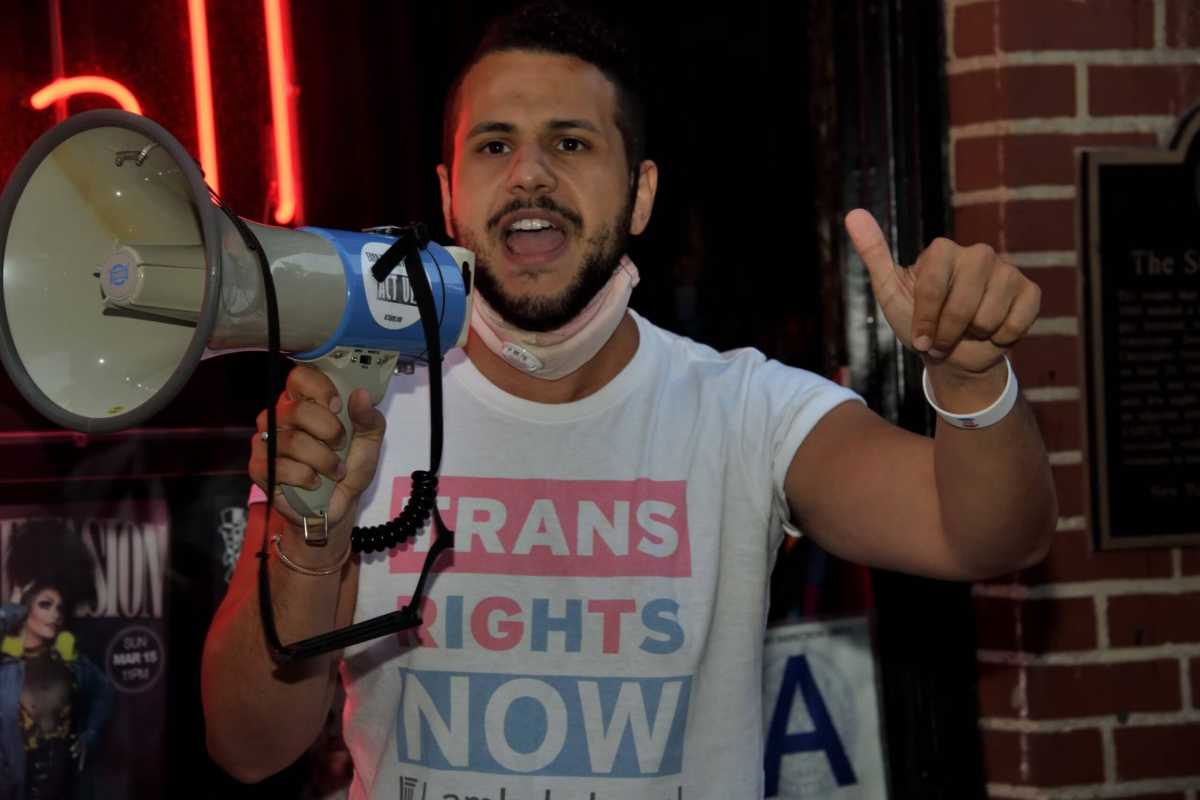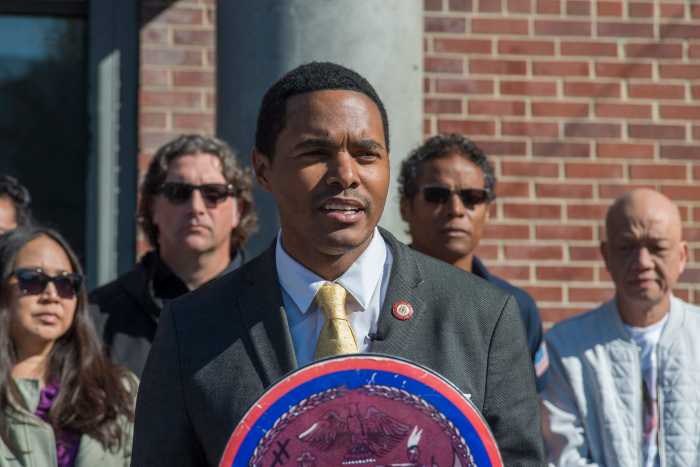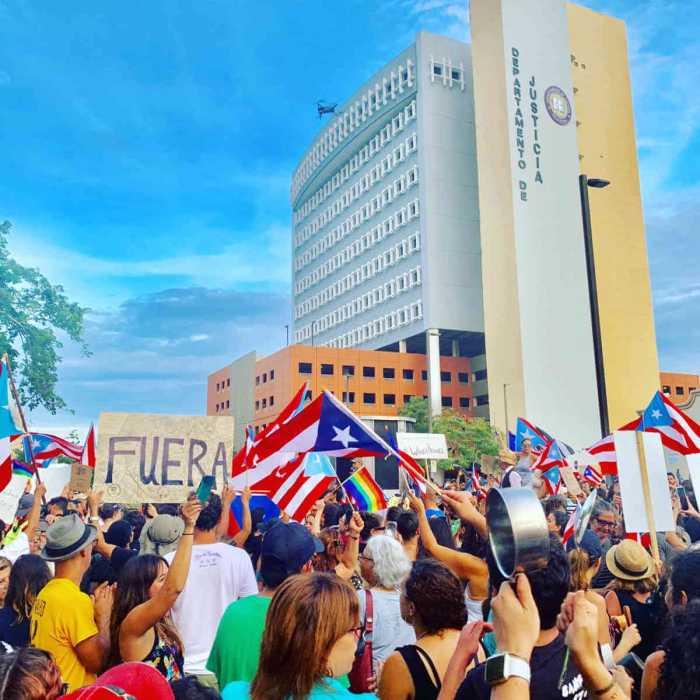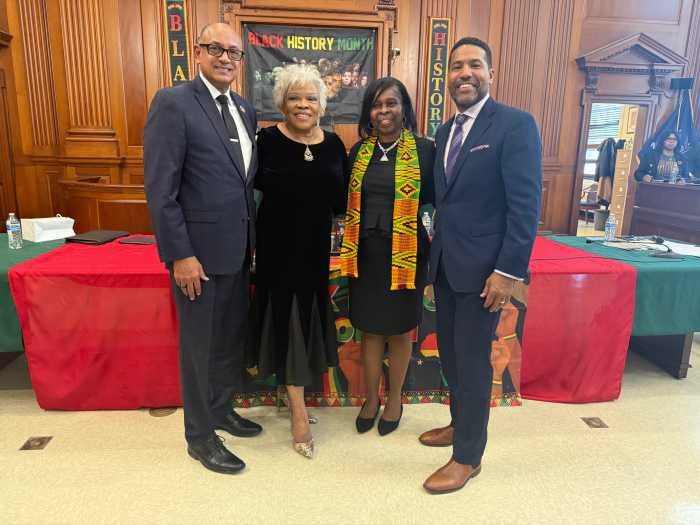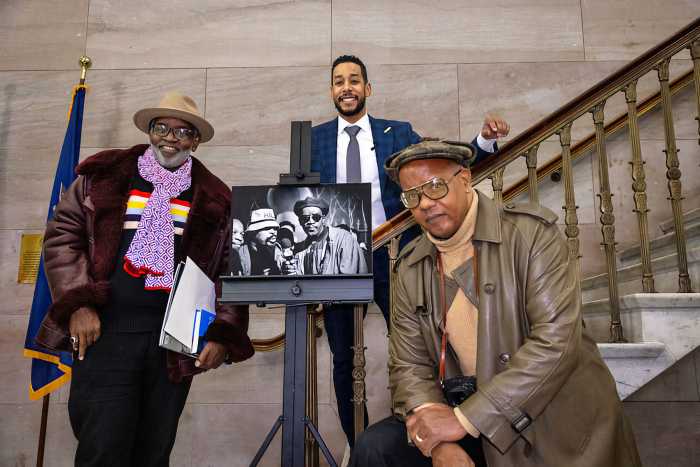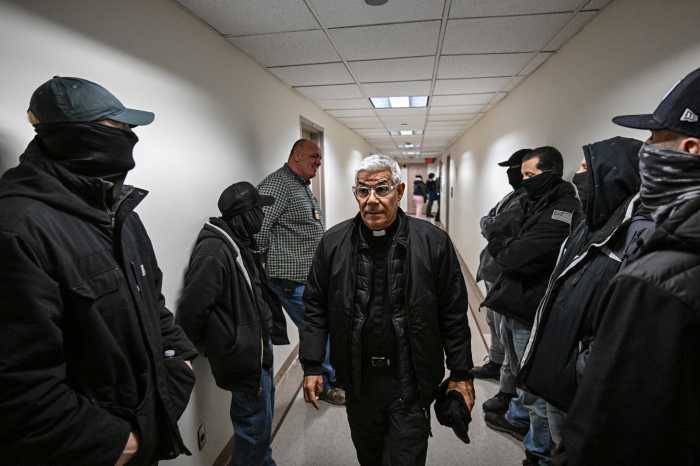Brooklyn Democrats, at a December 20 meeting, moved one step closer to allowing gender non-binary people to run for the borough party’s lowest rung of elected office.
The party’s Task Force on Gender Discrimination and Representation voted unanimously to remove gender requirements from county committee seats, which currently have to be evenly split among male and female members — effectively excluding hopefuls who don’t identify on the gender binary.
“We know that for decades many people in our communities have been silenced, marginalized, and excluded because of their gender and with this change we will say, ‘No more, we see you,’” said task force member and Bushwick district leader Samy Nemir-Olivares at the virtual meeting. “Gender is deeply personal. No one should have to disclose that to represent their block in a political party and no one should have to tell every neighbor who they are or how do they identify while knocking on their doors.”
Task force appointed by county boss unanimously approves motion to eliminate old male-female parity requirement
The proposal would eliminate a decades-old quota that evenly splits the two-to-four seats in each so-called election district — which covers just a few city blocks — between men and women.
The regulations are based off of a 1938 State Constitution amendment, originally intended to encourage more women to enter the political fold, but presents a barrier to those who don’t identify with these gender designations.
One first-term Boerum Hill district leader on the task force, who ran on the female ticket this year but recently came out as non-binary, said the seats shouldn’t force candidates to claim a gender they don’t identify with.
“Gender is a very personal and private topic for individuals, it’s also very fluid,” said Jesse Pierce.
Six Democrats sued the party in April to allow gender non-binary people to run, but a Kings County Supreme Court judge tossed out that lawsuit on technicalities — yet the move prompted Brooklyn Democratic Party boss and Flatbush Assemblymember Rodneyse Bichotte to convene the task force in August to address the outdated rules.
“Our Task Force’s unanimous recommendation that we remove gender designations as a requirement to run for office is not only the right decision, it is the only acceptable decision,” Bichotte said December 21. “No one should be barred from participating in our party and we have now set a precedent for progress for Democrats across the nation.”
The group met 10 times to discuss how to best address the gender rule, with presentations by academics and testimony from hundreds of people over the following months.
Last month, the task force, in a divided vote, passed a recommendation to create, on an interim basis, 84 gender-neutral slots for Brooklynites to be appointed by the party’s 42-member executive committee, while at the same time consolidating power among leaders to fill more than 2,000 vacant remaining seats, a move progressives on the panel described as a “pink-washed power grab.”
A Kings County Supreme Court judge on Dec. 10 voided all those appointments, declaring them in violation of state election law.
During the Sunday night meeting, one task force member initially advocated for approving a different proposal that would have reserved one seat per election district for women, saying that some corners of the borough might otherwise see a resurgence of male dominance.
“Doing away with the protections for females in this case, actually I believe, impacts some [election districts] more than others because this rule is what actually forces the male-dominated political structure to actually encourage and recruit women into this process,” said lesbian activist Lisa Fane.
However, other members countered that more women tend to run for the local offices than men already, meaning that eliminating the seats designated for men will lead to more female representation, and that the party should not have a seat ostensibly to empower women while still disenfranchising non-binary Brooklynites for that position.
“Yes, women must have better and more representation at all levels of politics,” said Nemir-Olivares. “But the way to achieve women’s participation doesn’t have to come at the expense of gender exclusion of the most marginalized.”
Once the majority of the 17-person panel voted in favor of the original proposal, Fane switched her vote in favor of that too, in order to have the measure pass without opposition, she said.
“I would really like to be able to make this a unanimous decision to the committee,” said Fane. “I think that will send a really strong message to the County Committee about how committed we are all in working together and in moving forward.”
The recommendation will come before the full county committee on December 23 — a continuation of last week’s 13-hour recessed full meeting — and, if passed, will come into effect for the 2021 election cycle for those seats.
This article originally appeared in Gay City News’ sister publication, Brooklyn Paper. To sign up for the Gay City News email newsletter, visit gaycitynews.com/newsletter.

